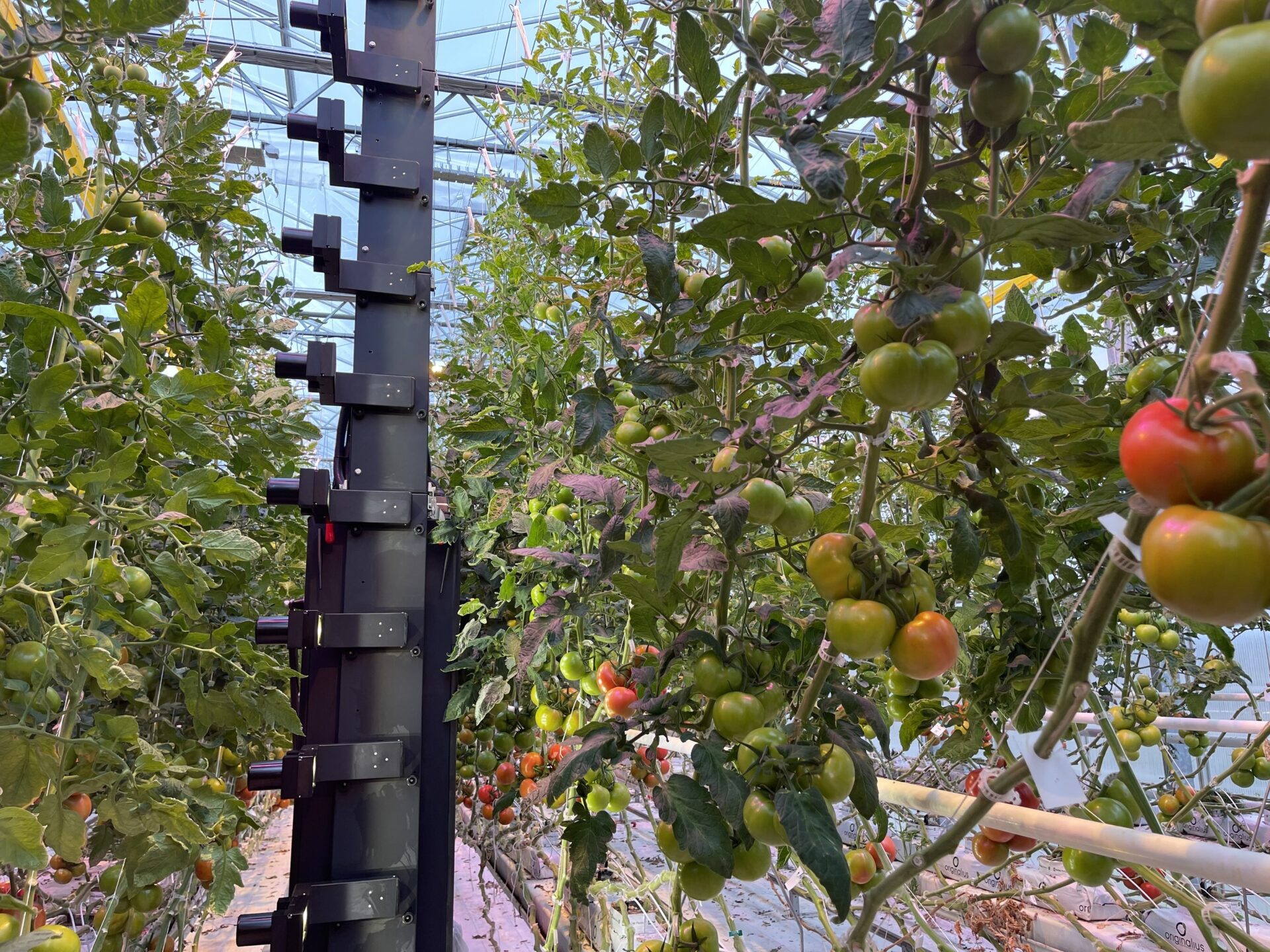Seattle, Washington-based IUNU, which makes autonomy tools for indoor agriculture, has secured a $20 million second tranche of Series B funding.
S2G Investments, which participated in the first tranche, led this round with participation from Farm Credit Canada (FCC) and existing investor Lewis & Clark Partners. The round brings IUNU’s total funding to date to $65 million.
IUNU says it plans to use the new funds to expand into more markets across North America and Europe. New capital will also support the expansion of IUNU’s commercial and engineering teams, strengthening its technical leadership.
‘Automation is becoming a necessity’
Since its first Series B round, in 2022, IUNU (pronounced “you knew”), has further built out its suite of hardware and software tools for greenhouses, with the goal of providing growers “plant-level visibility” and insights for vine crops including tomatoes, cucumbers, and peppers.
In 2023, it unveiled a mast imaging system that can reach up to 15 feet tall and include up to 14 cameras. Combined with the LUNA AI software insights platform, it collects plant data from the entire tomato vine to provide better forecasting, analysis of tasks (e.g., de-leafing, pruning, etc.), and information about crop health and quality.
At the time of the mast system release, IUNU said tomato growers were collecting “10 times more data than with other imaging solutions,” enabling “up to a 14% increase in profits.”
Greenhouse growers today face the same problems around labor and efficiency as other agricultural operations. Changes by the Trump administration to immigration policies in the US add another layer of uncertainty to the situation. All of this lays the groundwork for more automation.
“Increased greenhouse automation is becoming a necessity as labor shortages have been exacerbated by an aging grower population, a shrinking migrant workforce, and COVID-19,” says IUNU CEO Adam Greenberg. “IUNU’s technologies allow growers to maximize the efficiency of a smaller workforce, increasing the viability of their operations in a changing labor landscape.”
He adds that IUNU’s technology can also diminish crop loss in greenhouse operations: “Greenhouses suffer from inconsistencies and poor visibility rooted in unscalable industry practices like manual data collection. Greenhouse crop losses range from ~10%–20%, resulting in a substantially reduced profit margin. Forecasting yield and mitigating crop losses are important both in optimizing grower profit and minimizing food waste.”
‘We worked with investors who were highly educated in agriculture’
As an investment category, novel farming systems, which includes greenhouses and other indoor agriculture, declined more than 50% in 2024. However, most of this was driven by vertical farming’s continued market correction in which one-time unicorns are shuttering their doors left and right.
Greenhouses, by contrast, don’t come with the hefty energy price tag associated with vertical farms, and the greenhouse model has a proven track record that’s more than a century old.
The generalist investors that flocked to vertical farming several years ago have, with one or two exceptions, largely stayed way from greenhouses.
When asked if the funding slump for indoor ag had impacted IUNU’s most recent raise, Greenberg said, “We felt it was relatively straightforward because we worked with investors who were highly educated in agriculture, and who deeply understood the value we bring to CEA [controlled environment agriculture].”
For example, round leader S2G Investments has a long history of backing food and agriculture companies.
Cristina Rohr, food & agriculture managing director at the firm, told AgFunderNews that controlled environment agriculture has reached “a turning point” where greenhouse growing is more critical to ensuring food security in more places.
“As growers navigate tighter margins and greater operational complexity, they urgently need scalable and data-driven solutions,” she added.
“It’s an area ripe for innovation and this is exactly what IUNU is addressing. With its LUNA platform, we believe the company is setting a higher standard for productivity and profitability in CEA.”





